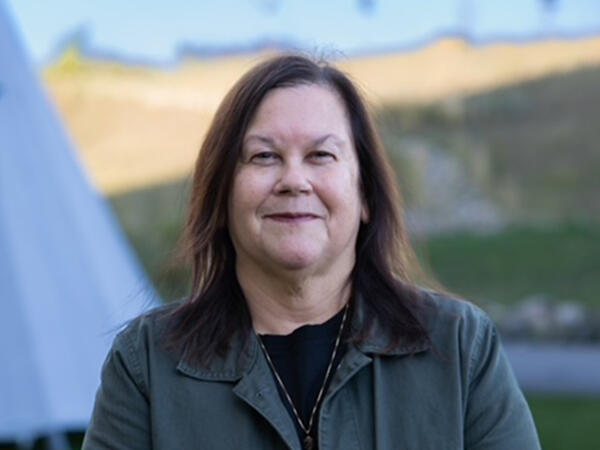An international team of researchers led by Keith Pardee, assistant professor at the Leslie Dan Faculty of Pharmacy, is developing a portable “lab in a box” to diagnose COVID-19, based on technology platform previously demonstrated for the diagnosis of Zika virus infection. Pardee, along with postdoctoral fellows Margot Karlikow and Masoud Norouzi, discussed the research in an online presentation on April 22. Nearly 200 people tuned in for the live webinar to hear the latest updates from the Pardee Lab.
The new diagnostic test uses enzymes and DNA sensors that can be freeze-dried and embedded into paper, and when activated, detect the presence of a specific region of a pathogen’s genetic material and produce a visible signal.
Pardee and his team use innovative synthetic biology and cell-free approaches, which allows the assembly of tools that can be used anywhere. The new diagnostic test uses enzymes and DNA sensors that can be freeze-dried and embedded into paper, and when activated, detect the presence of a specific region of a pathogen’s genetic material and produce a visible signal. The technology is adaptable, low cost, and, by using components that can be manufactured locally, resilient to supply chain disruption – making it ideal for use in low to middle income countries and remote locations.
Pardee and his colleagues first used the platform for the Zika virus outbreak that hit Latin America in 2015/2016. Their platform could detect different strains of the Zika virus and distinguish it from the closely related Dengue virus, and in recent patient trials in Ecuador and Brazil, it was as sensitive and specific as conventional diagnostic tools, with the benefits of being automated, portable and battery operated.
Pardee began thinking about how this technology could be applied to the novel coronavirus early in the outbreak, and in March, he received $1 million in funding from CIHR to develop a deployable “lab in a box” for COVID-19 with capacity to run 14,000 diagnostic tests.
New diagnostic test will be ready for testing in early summer
Over the course of just a few weeks, the team has made significant advances in adapting the platform to a new pathogen. They have been working closely with Alex Green’s lab at Arizona State University, who have identified regions of the virus’s genome that could be used for diagnosis and built the technology to detect these regions with high specificity, even distinguishing it from related viruses and mutant strains.
The Pardee team is now working to find the best sensor to detect the virus and increase the sensitivity of the test for clinical use. They have partnered with a team from St. Michael’s Hospital in Toronto to access patient samples that will be critical for validating the technology, and they plan to begin testing the kits as early as June.
The team’s expertise and their success with the platform for Zika virus puts them in a strong position to develop the tool in a short time frame. “It’s not something that we don’t know what’s going to happen,” said Norouzi. “We’re confident that we’re going to have a fully functioning set of sensors.”
“It’s a hard time for everybody, but there’s a lot of optimism and hope when I see the community spirit that’s out there."
During the presentation, Pardee mentioned the challenges of working during the pandemic, including difficulties with ordering supplies and reduced staffing in the lab, but ended with a positive message. “I’ve seen incredible creativity and collaborative work… It’s a great time for science to shine in response to this challenge,” said Pardee. “It’s a hard time for everybody, but there’s a lot of optimism and hope when I see the community spirit that’s out there.”
Audience Q&A
We had so many great audience questions, we wanted to include those we didn’t have time to answer here. The Pardee lab is current working on their responses so check back soon for an updated version including a Q&A.
Webinar Recording
The webinar recording is now available on the Leslie Dan Faculty of Pharmacy’s YouTube page.
By Eileen Hoftyzer
More News
Image

Research team aims to co-design diabetes and dementia support programs that meet community needs
Network for Health Populations funding will support collaborative project to improve health outcomes for immigrant communities in Mississauga.
Read More
Image

Pharmaceutical industry resident finds growth in new challenges
Pharmaceutical Industry Residency Program Award recipient AnnaMaria Passas gained new skills through residency and research project to improve marketability in industry.
Read More
Image

Pharmacy alum sees change in acceptance of Indigenous cultures in health care
During Deborah Emery’s 40-year pharmacy career, she provided care in Sioux Lookout, Thunder Bay and Manitoulin Island.
Read More